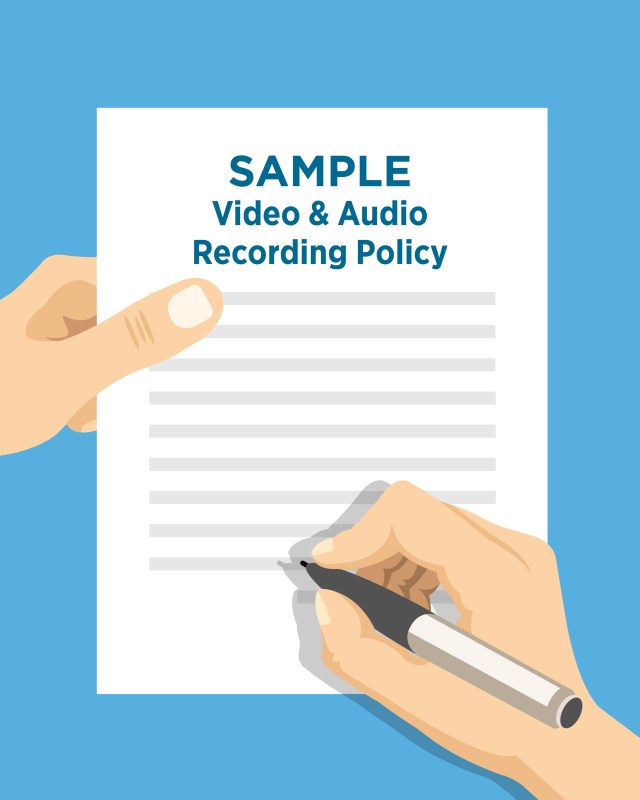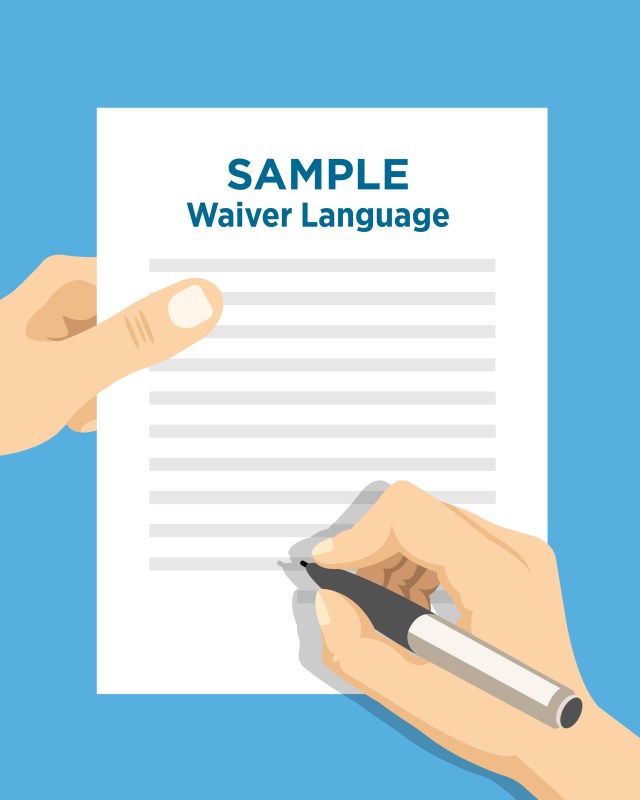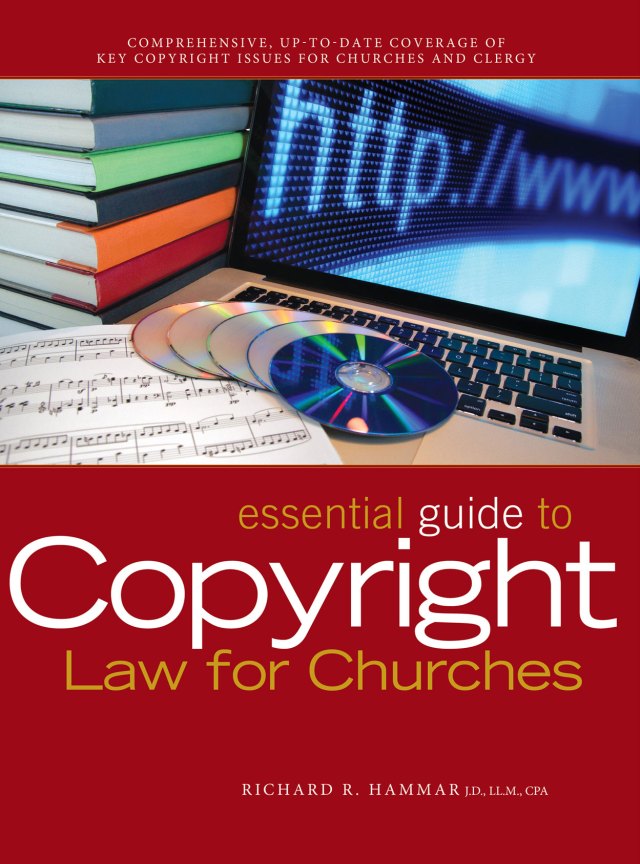Shouting “Amen” at a computer screen may have seemed unusual 12 months ago, but COVID-19 has changed many churches’ approach to Sunday worship, Bible studies, prayer gatherings, governance meetings, and staff meetings.
Moving these events to online platforms like Zoom, Facebook Live, or YouTube has been critical for delivering teaching and maintaining fellowship as best as possible. Likewise, many ministry employees and volunteers now work and serve remotely as the new norm, with videoconferences substituting for in-person meetings and program activities.
To what extent may churches and other ministries record their activities, particularly if the recordings contain people’s images, names, and potentially sensitive information? Is doing so always legal or does legality depend on specific locations and situations? What constitutes best practices for handling live online events, video recordings, as well as related audio recordings and photographs?
From ad hoc solutions to a legal policy
As with many COVID-related issues, ministries may have answered these questions on an ad hoc basis in the early weeks and months of the pandemic, perhaps even quickly pulling together ministry practices for photo and video usage.
Now is an excellent time to more carefully address such important matters through developing, adopting, and implementing a formal and legally compliant video and audio recording policy. Such a policy should define when video and audio recordings may be made, identify appropriate safeguards related to consent and personal privacy, and address related considerations like intellectual property ownership and usage. Optimally, the policy should apply to both program activities and the ministry work environment.
What to consider when creating a policy
The accompanying PDF sample policy spells out a suggested scope, applicable requirements, and compliance aspects. In considering such a policy, ministry leaders should evaluate and address the following policy goals.
Define permitted recordings and photography
What will be the scope of permitted recordings? The policy should state the permissible circumstances for video, audio recordings, and photography taken during worship services and ministry activities. These parameters provide clear limits for a church when conducting online activities. For example, a church that livestreams its worship services may want to retain all control and discretion by allowing only authorized church personnel to record the services.
Tip. A church may determine that personally shared prayer requests or confession-oriented statements will remain within a small group’s online discussion, with no additional posting allowed (and including requests or statements made both orally or through “chat” communications).
Tip. A ministry may decide that only worship services may be recorded and no other activities (e.g., staff meetings, board meetings, small groups or Bible studies, and children’s ministry) due to related privacy and confidentiality concerns.
Obtain consent
The policy should address consent for video and audio recording for those present at the service or activity. How will consent be obtained—expressly through a written waiver and release form, implied by each person’s participation, via website login protocols, or perhaps all three? An announcement at the outset of a worship service, whether oral or written, could be quite important for garnering implied consent. Adding specific waiver language to children’s program consent forms could be effective too. (See the sample waiver language PDF—which can be adapted for both a child and an adult.)
Caution. It is a crime under certain state and federal laws to surreptitiously make video or audio recordings—that is, to do so while avoiding detection, such as when a person eavesdrops and records a conversation or meeting. Ministry leaders should avoid any secretively made recordings, whether actual or perceived.
Honor privacy
People have legal rights of privacy to varying degrees regarding their names, likeness, and image. Privacy interests otherwise warrant respect, in practical terms. Consequently, ministry leaders and those who make video and audio recordings should conscientiously avoid recording material (or using recorded material) that could be perceived as invasive or too personal. For example, attendees at a worship service or other live online event may or may not want to let it be known that they (or their children) were present.
To reduce potential privacy issues, avoid any camera panning on the congregation, and do not publish any attendee lists. Give people an opportunity to not be seen or heard—such as through focusing only on the main speaker, giving attendees the opportunity to sit in an area that will not be shown in the video, and making clear that unauthorized recordings are not allowed. Do not allow unauthorized photos either, such as posted through the ministry’s website without proper protocols.
Tip: Make these applicable policy restrictions overt and clear, such as through a verbal announcement (e.g., “no recording allowed”) or written information as part of the ministry activity (e.g., “The Church service is starting in two minutes. Reminder: no individual recording or screenshots are allowed.”)
Use employment-related recordings sparingly and cautiously
Should staff meetings or other employment-related situations be recorded? This could be quite a useful tool, such as for employees who miss a training or other meeting. However, ministry leaders should be very careful about what gets recorded, considering questions like the following: Could such activities be unduly embarrassing, personal, or otherwise not appropriate for recording? Would workers become less candid, knowing that their words will be recorded? How long will or should recorded staff meetings be retained?
In thinking through these challenges, ministry leaders may determine that it is best to just utilize a blanket prohibition against any employment-related recordings. On the other hand, perhaps a limited-purpose policy may be best, such as to record sensitive discussions (e.g., an employee disciplinary conference)—but only upon express consent given by all participants. Such consent could be given at the meeting’s outset, such as with the following introduction: “This meeting is being recorded. Do you consent?”)
What about board and committee meetings?
It may be helpful to record board meetings, other leadership meetings, or even church membership meetings, such as in case of any disagreement over what happened or to help a secretary prepare minutes. Such recording should never become a substitute for written minutes, but rather only serve as an aid.
Additionally, as with staff matters, recording a board meeting may have a “chilling” effect inhibiting robust discussion. Imprudent or inappropriate disclosure could also be quite damaging, such as if confidential information is divulged, and therefore potentially actionable as a legal claim. For these reasons, it may be best to prohibit recording these types of activities, with accompanying announcements as mentioned above and with related prohibitions for “chat” communications.
Policies promotes understanding
Recording ministry programs and other matters could carry a plethora of benefits. But doing so also raises legal risks and practical concerns. If a ministry is going to record any activities, then make sure the ministry leaders likewise address consent, appropriate context, proper usage (including intellectual property rights), record retention, and how to address violations. An ideal way to handle all such matters is through a written policy that promotes clear understanding, provides follow-through steps, and encourages legal compliance and best practices. And then follow the policy!
Sally Wagenmaker, an advisor at large for Church Law & Tax, is a founder and partner of Wagenmaker & Oberly, a law firm serving churches and nonprofits nationwide. Micah Chetta is an associate attorney with Wagenmaker & Oberly.







